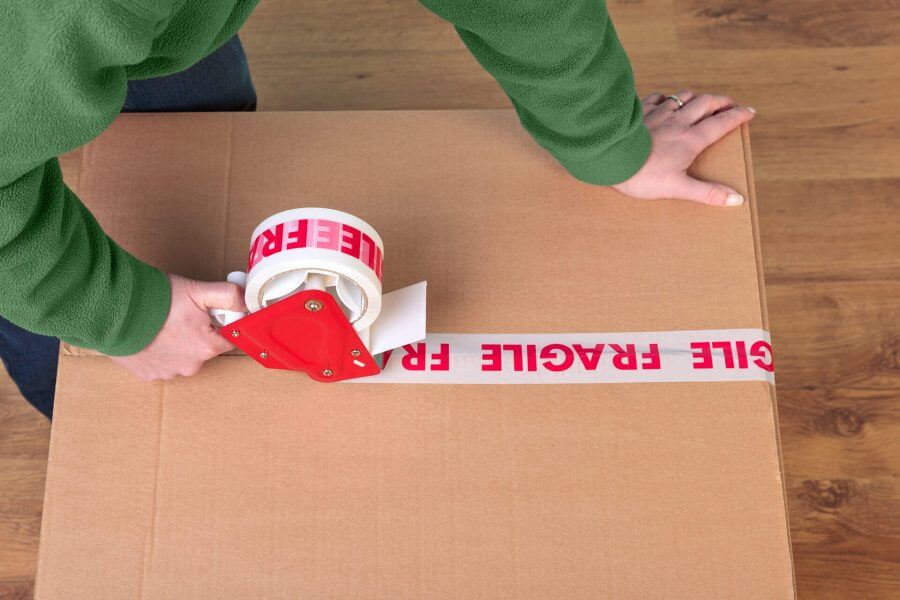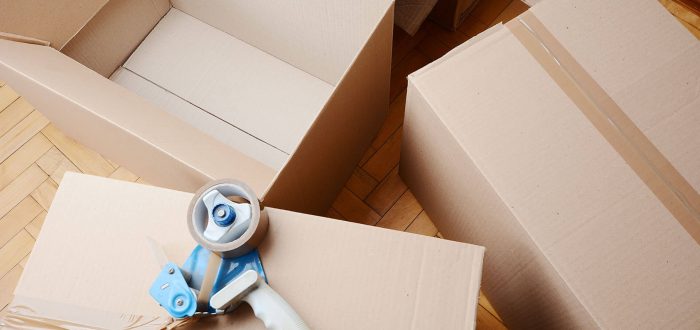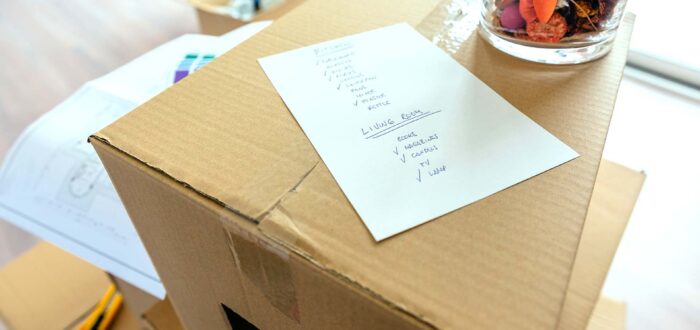

Preparing, Packing, Cleaning – Everything You Should Know About the First Day of Your Move
Posted in Moving Tips & Tricks,Planning the Move on June 7, 2023
Welcome to the exhilarating world of moving! Whether you’re embarking on a grand adventure across the city or venturing to a whole new chapter of your life in a different part of the country, the first day of your move is a unique blend of excitement, chaos, and a touch of nostalgia. It’s a day filled with the promise of new beginnings but also the challenge of navigating through the logistics and emotions of uprooting your life.
The first day of a move involves proper preparation, efficient packing, and thorough cleaning. It’s essential to have a well-organized plan in place, including creating a moving checklist, gathering necessary supplies, and arranging for any professional help if needed.
Prepare for the First Day of Your Move
Preparing for the first day of your move may not be the most glamorous task, but it’s a crucial step to ensure a smooth transition to your new home. It’s time to put on your planning hat and dive into the world of logistics and make a plan for your relocation to a new city or state.
Planning ahead can help you save money during your move. By researching and comparing prices for moving services, and supplies, you can make informed decisions and potentially find cost-effective options. Additionally, preparing in advance allows you to take advantage of any discounts or promotions available.
Also, a well-prepared move ensures that your belongings are properly packed and protected. Good preparation also enables you to assess if any special packing requirements are needed for fragile or valuable items.
Make a Moving Checklist
Start by creating a detailed checklist, outlining everything from hiring long-distance movers to notifying utility companies of your address change. Gather all the necessary materials, such as sturdy boxes, duct tape, and bubble wrap. Here is how your to-do list should look with a detailed timeline:
| Time frame | Tasks |
|---|---|
| 8 weeks before: | Create a binder to keep track of important documents and receipts. Research and book professional movers or truck rental services if needed. Notify your landlord (if renting) or start the process of selling your home (if applicable). Begin decluttering your belongings and decide what to donate, sell, or discard. |
| 6 weeks before | Take inventory of your possessions and create a detailed list for insurance purposes. Start gathering supplies such as boxes, tape, markers, and bubble wrap. Begin with non-essential items that you won't need before the move. |
| 4 weeks before | Notify relevant parties of your change of address, including the post office, utility companies, banks, insurance providers, and subscription services. Arrange for the transfer of medical records, school records, and any necessary memberships. Plan for the transportation of pets and ensure they are up to date with vaccinations. |
| 2 weeks before | Complete the majority of your boxing up, labeling each box with its contents and the room it belongs to. Confirm the details with your chosen company or finalize your truck rental reservation. Start using up perishable food items and plan meals to minimize waste. |
| 1 week before | Pack a suitcase with essentials for the first few days in your new home, including clothing, toiletries, and important documents. Finish boxing up remaining items, leaving only the essentials for the last few days. Defrost and clean your refrigerator and freezer. |
| Day before | Double-check that all boxes are properly labeled and securely sealed. Set aside important documents, valuables, and essentials in a safe place. Confirm the details with your moving company or truck rental service. |
| Moving day | Take a final walkthrough of your old home to ensure nothing is left behind. Check each room, closet, and storage area before leaving. Keep important documents, keys, and contact information easily accessible. |
| After moving | Unpack essential items first, focusing on setting up bedrooms, bathrooms, and the kitchen. Take your time to unpack and organize, one room at a time. Update your new address with relevant parties, including the DMV, voter registration, and insurance providers. |
Hire Cross Country Movers
Once you decide where to move, whether down the road or to a new state, hiring professional services can take a lot of anxiety about moving out, especially if you are relocating alone. There is no doubt that hiring cross-country movers will be essential for a smooth and successful move since long-distance moving involves a significant amount of time and effort.
Professional movers have the expertise and resources to efficiently pack, load, transport, and unload your belongings, saving you valuable time and energy. Their streamlined processes ensure that your move is completed within the agreed-upon timeline.

Use Different Cross-Country Moving Services
However, choosing a moving company is probably one of the most significant tasks you need to do to have a successful and efficient move. So before you hire a company, make sure you get a company that can provide you with all the necessary cross-country moving services you need.
For example, Cross Country Movers is a company that offers moving services but also car shipping and storage services. So if you think you will need these services, hire one company that can do everything for you. This way, you will avoid the unnecessary conundrum of navigating the logistics between different companies that provide different services.
Also, when interviewing different companies, see what special services and deals they offer and where you can save money. To give another example of good services, Cross Country Movers give to all customers free of charge standard packing services. This means they will pack and protect all your large items, like furniture, before placing them on the truck. Keep in mind that some companies charge this service as part of their initial qoute.
Figure Out Packing Strategies That Fulfill Your Needs
Without good strategies in place, it will be difficult to organize your packing in the most efficient way. There are many packing tips you can use not only to speed up the process but also to save money on unnecessary expenses. Keep in mind that different items demand different materials and techniques, so packing furniture made of wood will not be the same as dealing with furniture that is made of metal or fabric. Make sure before you start boxing up any item, especially delicate ones, that you do your research before.
Decide What to Pack and What to Get Rid Of
Getting ready for the moving day starts with decluttering. It is crucial to make decisions about what to keep and what to get rid of, so the whole process can be much easier. And with fewer things to relocate, cargo will be lighter and less expensive. Here is a clear and concise approach to help you with this process:
- Assess your needs – Consider the new living space, lifestyle, and climate at your destination. Determine which items are essential and will be useful in your new home.
- Declutter – Take the opportunity to declutter your belongings. Categorize items into groups such as keep, donate, sell, or discard. Be honest about whether each item is truly necessary or holds sentimental value.
- Consider practicality – Prioritize items that are practical, functional, and frequently used. Consider available storage space and determine if an item will serve a practical purpose in your new environment.
- Evaluate sentimentality – While sentimentality is important, evaluate whether certain items hold significant sentimental value or are simply collecting dust. Choose to keep meaningful items that truly hold a special place in your heart.
- Maximize efficiency – Focus on items that are versatile and serve multiple purposes. Opt for lightweight and compact items that can be easily transported and stored.

Choose the Right Boxes and Packing Materials
When it comes to choosing the right boxes, opt for corrugated cardboard boxes as they provide durability and strength. Select boxes of various sizes to accommodate different items, ensuring a snug fit without overpacking. For delicate or valuable belongings, consider using specialized boxes such as wardrobe boxes for clothing or dish pack boxes for fragile dishware.
To provide cushioning and protection, stock up on bubble wrap, packing paper, and peanuts. Invest in high-quality duct tape to securely seal the boxes, keeping your items safe during transit.
Pack Room-By-Room and Label Boxes
So can you move out of your house on the first day? Well, if you started to pack on time, this will be possible. Starting by dealing with one room at the time. This way you will ensure that items from each area stay together, making the unpacking process more efficient. This approach allows you to prioritize essential items and unpack room by room in your new home.
By labeling boxes with the contents and the corresponding room, you can easily identify and locate items when unpacking, saving time and reducing confusion. This organized labeling system also helps movers know where to place each box, streamlining the whole process and preventing items from being misplaced or forgotten.
Employ Tips for Dealing with Fragile Items
The first day of the move will be chaotic and with a lot going on. This is why it is crucial to have everything prepared before the movers arrive. Good preparation will help you and your movers to get the job done faster and more safely.
So when dealing with fragile items, it’s important to prioritize their protection. Wrap each fragile item individually with paper or bubble wrap, providing a layer of cushioning to prevent breakage. Place these items in sturdy boxes, preferably using specialized boxes designed for fragile items. Fill any empty spaces within the box with peanuts or crumpled paper to minimize movement during transit.
Clearly label these boxes as “Fragile” to alert movers and ensure they handle them with extra care. Taking these precautions helps safeguard your fragile items and provides peace of mind during the relocation process.

Cleaning Your Old Home
Before moving day arrives, one of the things you will have to do is a deep cleaning of your old house and cleaning of your new one once you arrive there. So you need to think about this as part of moving day preparation so you can leave cleaning supplies in a visible place where you can reach them. Cleaning before moving cross country is crucial for several reasons.
First, it’s a common requirement in rental agreements to leave the property in a clean condition. By doing so, you increase the likelihood of receiving your security deposit back or maintaining a good relationship with the new occupants or the landlord. Additionally, cleaning ensures that you leave the home in its best possible condition for the next occupants and allows for a smooth transition.
Prepare Your New Home for Move-in
Preparing a new home for move-in is an essential step to ensure a smooth transition and a comfortable start in a new space. Here are some key tasks to consider:
- Clean the space – Before putting in your belongings, it’s beneficial to give your new home a thorough cleaning. Dust surfaces, wipe down countertops, clean windows, sweep or vacuum the floors, and mop if necessary. Pay special attention to the kitchen and bathroom areas.
- Make necessary repairs – Take the opportunity to address any repairs or maintenance tasks in your new home. Fix leaky faucets, replace light bulbs, repair minor damages, and ensure that everything is in working order before you settle in.
- Utilities and services setup – Arrange for the setup of utilities such as electricity, water, gas, and internet services well in advance. Contact the necessary service providers to schedule installations or transfers to ensure a seamless transition upon moving in.
- Plan furniture placement -Take measurements of your new home’s rooms and plan where your furniture will be placed. This way, you can have a rough layout in mind before the moving day. Consider factors such as natural light, traffic flow, and functionality when deciding on furniture placement.
- Change locks and security – For added peace of mind, consider changing the locks on your new home. This ensures that you have control over who has access to your property. If applicable, test any existing security systems or install new ones to enhance the safety of your new home.
- Familiarize yourself with the neighborhood – Take some time to explore the new neighborhood. Find nearby amenities, such as grocery stores, pharmacies, and medical facilities. Also, familiarize yourself with public transportation options and nearby parks or recreational areas.
Change Your Address and Notify Important Parties
Changing your address and notifying important parties is a crucial step when you move. Start by visiting your local post office or their website to officially change your address. Fill out a change of address form to ensure your mail gets redirected to your new home.
Notify government agencies, such as the Department of Motor Vehicles (DMV,) of an update of the address on your driver’s license, vehicle registration, and voter registration. Also, inform your bank, credit card companies, and insurance providers about your new address to ensure important financial documents and statements reach you.
Last but not least, notify your healthcare providers, schools, and workplace about your address change to ensure uninterrupted communication and continued services. Take a look at this USPS tutorial on how to change your address.
The First Day of Your Move Will Go Smoothly If You Follow the Plan
Now, if you’re ready to embark on this exciting journey but need a helping hand, look no further than Cross Country Movers! Why go through the moving across country hustle alone when you can enlist help? Take the leap, dance your way to your new home, and let Cross Country Movers be your trusted partner in making your move a grand success. Get in touch with us today and let the relocation magic begin!
FAQ
How Early Should I Start Preparing for My Move?
It’s recommended to start preparing for your move at least 8 weeks in advance. This allows ample time to organize, declutter, and make necessary arrangements.
What Should Be On My Moving Checklist?
Your moving checklist should include tasks such as hiring movers or renting a moving truck, changing your address, notifying important parties, and preparing your new home for move-in.
Should I Hire a Moving Company or Rent a Moving Truck?
The choice depends on your specific needs and circumstances. Hiring a moving company provides convenience and expertise while renting a moving truck allows for more flexibility and control. Assess your requirements and budget to make the best decision.
How Do I Change My Address and Notify Important Parties?
Start by visiting your local post office or their website to officially change your address. Additionally, notify government agencies, financial institutions, utility providers, healthcare providers, schools, and your workplace about your address change.
How Can I Prepare My New Home for Move-in?
Prepare your new home by cleaning the space, making necessary repairs, setting up utilities and services, planning furniture placement, changing locks if necessary, and familiarizing yourself with the neighborhood.
What Packing Materials Should I Use?
Use sturdy boxes in various sizes, specialized boxes for fragile items, bubble wrap, paper, peanuts, and quality duct tape to ensure the safety of your belongings during the move.
How Do I Pack Room-By-Room and Label Boxes?
Pack one room at a time to stay organized. Place items from each room together in boxes and label them with their contents and the room they belong to. This makes unpacking and locating items easier.
What Are Some Tips for Packing Fragile Items?
Wrap fragile items individually with paper or bubble wrap, use sturdy boxes with proper cushioning materials, fill gaps with peanuts or crumpled paper, and clearly label boxes as “Fragile” for careful handling.
How Do I Decide What to Pack and What to Get Rid Of?
Assess your needs, consider practicality, evaluate sentimentality, and focus on maximizing efficiency. Keep items that are essential, practical, and hold significant value while decluttering and donating or discarding items that are no longer needed or useful.
Why Is It Important to Clean Before Moving Out?
Cleaning before moving out is often required in rental agreements and helps maintain a good relationship with the landlord or new occupants. It also ensures the home is in good condition and ready for the next occupants.
What Are Some Cleaning Tips for Different Areas of the Home?
Clean kitchens by tackling appliances, countertops, and floors. Scrub bathrooms, including the bathtub, shower, toilet, and sink. Dust and wipe down surfaces in living areas and bedrooms. Don’t forget about entryways, hallways, and outdoor areas.
How Do I Get Rid of Unwanted Items?
Donate usable items to local charities, sell items online or through garage sales, or dispose of them properly, following local regulations. Consider recycling or responsible disposal options for electronics and hazardous materials.
What Should I Do If I Encounter Any Problems on the First Day of My Move?
Stay calm and flexible. Communicate any issues with your moving company or rental truck provider. Have a backup plan in case of delays or unexpected challenges. Remember, a positive attitude and adaptability can help overcome any obstacles that arise.
How Can I Stay Organized and Calm during the Moving Process?
Create a moving plan, use checklists, declutter before you start to pack, pack methodically, take breaks, and delegate tasks when possible.
When Is the Best Time of Year to Move?
The best time to move depends on personal circumstances and preferences. Consider factors like weather, availability of movers, and potential cost savings during off-peak seasons.







